 The popularity of Baha’i can largely be attributed to its attempts to unify all faiths, prophets and the entire human race. It embraces the humanist philosophy that all religions should be embraced equally because they are not contradictory and are merely successively updated versions of the same basic religious beliefs. They teach that all religions are the result of the same God and the differences stem only from the age in which they were revealed.
The popularity of Baha’i can largely be attributed to its attempts to unify all faiths, prophets and the entire human race. It embraces the humanist philosophy that all religions should be embraced equally because they are not contradictory and are merely successively updated versions of the same basic religious beliefs. They teach that all religions are the result of the same God and the differences stem only from the age in which they were revealed.
The Baha’i faith
The Baha’i faith has become a popular religion in an environment of ecumenism, inclusiveness and political correctness. Embraced eagerly by the United Nations and other interfaith organizations, Baha’i is a growing humanist influence on our world. There are currently 17,148 Local Spiritual Assemblies of the Baha’i faith in the world and 4,515 in the United States alone. Members claim a presence in 235 countries and their literature is translated into 700 languages with a total world membership estimated at 5,000,000. The following introduction is meant to be a brief overview Baha’i history, and is by no means an exhaustive history of Baha’i.
History of Baha’i Faith Origins
The popularity of Baha’i can largely be attributed to its attempts to unify all faiths, prophets and the entire human race. It embraces the humanist philosophy that all religions should be embraced equally because they are not contradictory and are merely successively updated versions of the same basic religious beliefs. They teach that all religions are the result of the same God and the differences stem only from the age in which they were revealed. They promote gender, racial, and economic equality; universal education; harmony between science and religion; balance between nature and technology; and the development of a world Federal system. Those who believe in absolute truths, such as those found in the Bible, are dismissed as intolerant and an obstacle to world peace.
Baha’i grew out of Islam, and is in fact a stepchild of the Islamic faith, albeit a despised one. Rather than naming Muhammad as the greatest of the prophets as the Muslims do, Baha’is hold Baha’u’llah to be the greatest of the prophets.
Baha’i was started in 1844 when Mizra Ali Muhammad (“the Bab” or gate) proclaimed he was the greatest manifestation of God yet to appear. The Bab is purported to be a direct descendant of Muhammad and he claimed to be the fulfillment of the scriptures of all of the world’s religions. During his brief 6 year ministry, he taught of another manifestation that would follow (similar to the role of John the Baptist). This manifestation would be even greater than he, and in 1863 Mirza Husayn Ali proclaimed that he was the Great prophet the Bab had spoken of.
Mirza Husayn Ali took the title of “Baha’u’llah” (the Glory of God) and his followers were thereafter called Baha’is. In addition to claiming most favored prophet status, Baha’u’llah also claimed to be the second coming of Christ and the spirit of truth recorded in John 14:16.
He viewed himself as the fulfillment of the coming of Maitreya, the Buddha from the Buddhist scripture, the Krishna for the Hindus, and a fulfillment of “the Day of God” from the Muslim Qur’an. In fact the Baha’is believe all of the world’s religions have pointed to the coming of Baha’u’llah, and that during his era, a promised reign of peace will be established.
The UN Agenda – ONE world Religion
Thirty years after proclaiming himself to be the fulfillment of all religions, Baha’u’llah died and leadership was passed to his son Abbas Effendi (also known as Abdul-Baha and “the Master”) who worked as an interpreter for his fathers many writings. He is responsible for bringing the Baha’i faith to the U.S.
Abbas Effendi was succeeded by his grandson, Shoghi Effendi became the “Guardian of the Cause,” and during his lifetime, Baha’is agreed there would perpetually be such a guardian. However, Effendi died before appointing a successor. Consequently, six years after he died, the first Baha’i Universal House of Justice was elected to serve as the Guardian. It has since been the governing body of the Baha’i faith. The Universal House of Justice is a nine-person board that applies the laws of Baha’u’llah and is made up of elected representatives. The first UHJ was comprised of Baha’i who represented Judaism, Christianity, Islam, and came from 4 continents and several ethnic backgrounds. The Baha’i temple in Wilmette, Illinois is a nine-sided building representing the world’s nine living religions and is a combination of synagogue, mosque, and cathedral, symbolizing the unity of all religions.
The goal of the Baha’i faith and its leadership is for the world to become a single super-state with Baha’i as its religion. It’s no wonder Baha’i is promoted vigorously by the U.N. and plays a major part in all United Nations spiritual events.
Baha’i literature proclaims the following:
“National rivalries, hatreds, and intrigues will cease, and racial animosity and prejudice will be replaced by racial amity, understanding and cooperation. The causes of religious strife will be permanently removed, economic barriers and restrictions will be completely abolished, and the inordinate distinction between classes will be obliterated. Destitution on the one hand, and gross accumulation of ownership on the other, will disappear.”1
| Baha’i and Christianity Comparison2 | ||
| Baha’i View | Christian View | |
| Scripture | Writings of Bha’u’llah | Bible alone |
| God | Unknowable | Knowable and personal |
| Jesus | Manifestation of God | Absolute deity |
| Jesus’ death | No salvific value | Atoned for sins of man |
| Second Coming | Baha’u’llah | Jesus Himself |
| Spirit of Truth (John 14:16) | Baha’u’llah | The Holy Spirit |
| World religions | Truth in all | Only Christianity true |
| Sin | Man imperfect, not fallen | Man fallen in sin |
| Salvation | Keep Baha’i law | Trust in Christ alone |
1. The Challenge of the Cults, Ron Rhodes, page 217
2. The Challenge of the Cults, Ron Rhodes, page 223
http://www.contenderministries.org/bahai.php
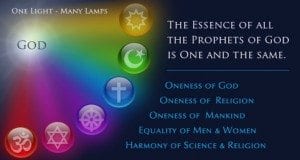 From the site that promotes Bahai is the ecumenical mantra of those who are ignorant of what the various faiths actually teach. Compromise is the shifting sand they seek to build upon a One world religion. Note: The image off their web page. Nice, I admit, but it is not true and bible prophecy has much to say about the formation of a One World religion. Will this play a part? Don’t know, but it is a tool of the UN to combine religions. Admirable, but destined for failure because it is not rooted in the revealed truth. Bahá’u’lláh has a tomb, Abraham, Krishna, Zoroaster, Moses, Buddha, and Muhammad , yet only Jesus tomb is empty! I rest my case. Jesus said He was God, and proved it. The bible says there is only One God and One Savior.
From the site that promotes Bahai is the ecumenical mantra of those who are ignorant of what the various faiths actually teach. Compromise is the shifting sand they seek to build upon a One world religion. Note: The image off their web page. Nice, I admit, but it is not true and bible prophecy has much to say about the formation of a One World religion. Will this play a part? Don’t know, but it is a tool of the UN to combine religions. Admirable, but destined for failure because it is not rooted in the revealed truth. Bahá’u’lláh has a tomb, Abraham, Krishna, Zoroaster, Moses, Buddha, and Muhammad , yet only Jesus tomb is empty! I rest my case. Jesus said He was God, and proved it. The bible says there is only One God and One Savior.
Declare and present your case; let them take counsel together! Who told this long ago? Who declared it of old? Was it not I, the LORD? And there is no other god besides me, a righteous God and a Savior; there is none besides me. Isaiah 45:22
“Let your vision be world embracing…” – Bahá’u’lláh
Throughout history, God has revealed Himself to humanity through a series of divine Messengers, whose teachings guide and educate us and provide the basis for the advancement of human society. These Messengers have included Abraham, Krishna, Zoroaster, Moses, Buddha, Jesus, and Muhammad. Their religions come from the same Source and are in essence successive chapters of one religion from God.
Bahá’u’lláh, the latest of these Messengers, brought new spiritual and social teachings for our time. His essential message is of unity. He taught the oneness of God, the oneness of the human family, and the oneness of religion.
Bahá’u’lláh said, “The earth is but one country and mankind its citizens,” and that, as foretold in all the sacred scriptures of the past, now is the time for humanity to live in unity.
Founded more than a century and a half ago, the Bahá’í Faith has spread around the globe. Members of the Bahá’í Faith live in more than 100,000 localities and come from nearly every nation, ethnic group, culture, profession, and social or economic background.
Bahá’ís believe the crucial need facing humanity is to find a unifying vision of the nature and purpose of life and of the future of society. Such a vision unfolds in the writings of Bahá’u’lláh.
Recall that the coming antichrist will come on a peace platform. Be a discerning Christian.
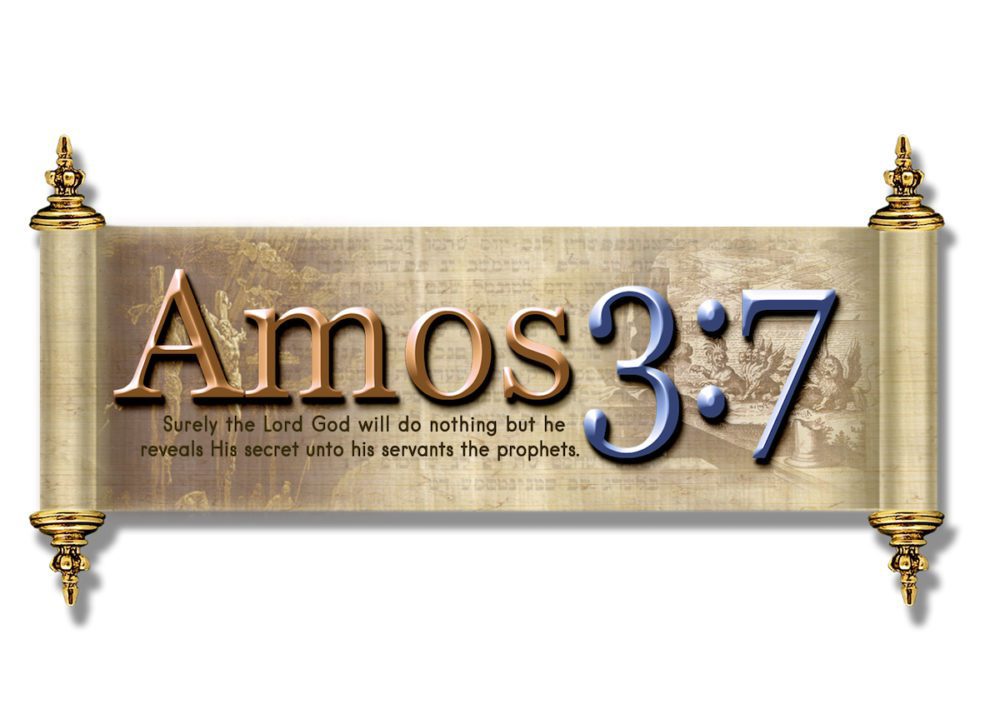
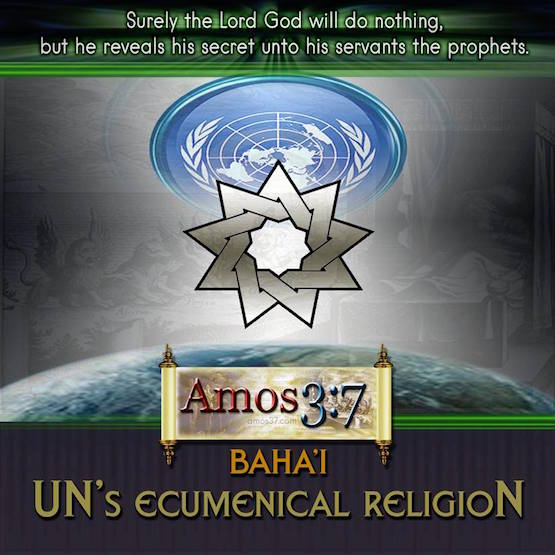

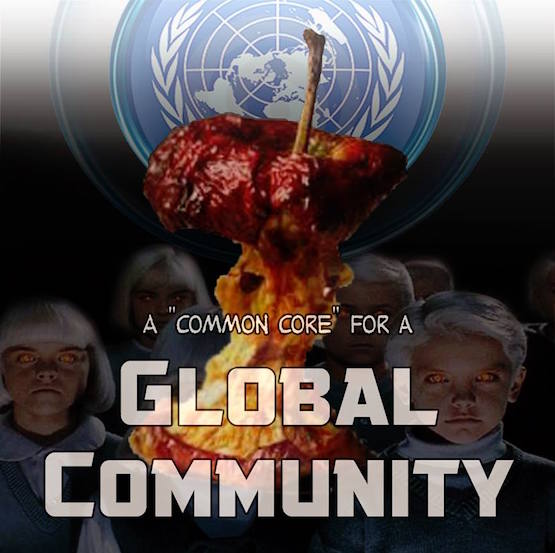
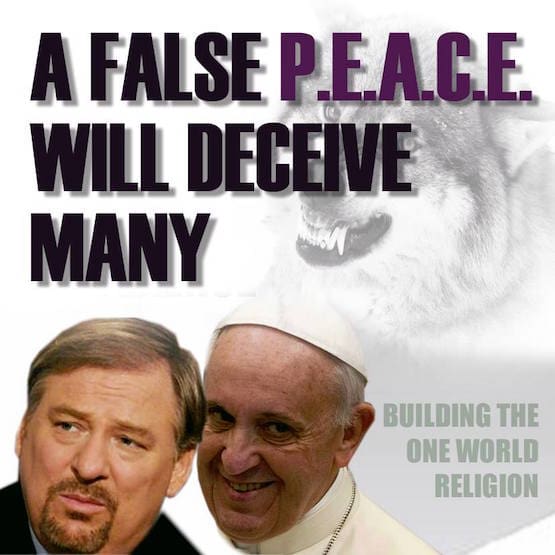












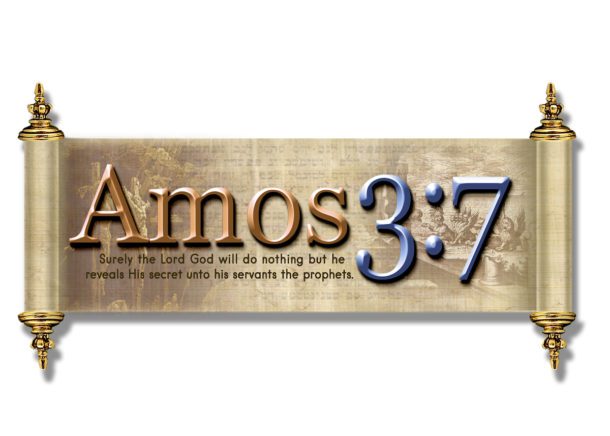

Religion can be defined as the worship and belief of gods or a god. The other definition is a set of beliefs regarding to the purpose and origin of the universe. Several religions consist of symbols, narratives, traditions and holy histories associated with deities. All these symbols and histories intend to give meaning to life and derive morality. Other interchangeable terms that can be used in place of religion are belief system and faith. Religion as a field studied by academics can be divided into three broad categories for instance world religion. Such students often write papers on religion and these religion papers are important because they contribute a lot to a student’s final grade. There are steps that should be noted down when writing religion papers and some of these steps will be discussed in this article. A religion paper is a paper that broadly discusses one of the major subjects in religion discipline. `
Have a look at all of the most recently released blog post at our personal web portal
<,http://www.foodsupplementdigest.com/grapefruit-seed-extract-uses/